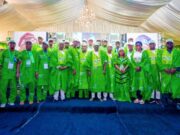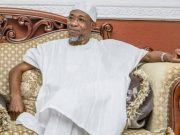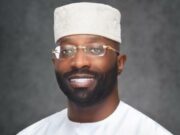Leaders and residents of Idiroko, a border town in the Ipokia Local Government Area of Ogun State, have expressed concern over what they described as a brewing religious crisis in the area.
The people said some individuals were fanning the embers of political discord by attacking Oro worshipers during their court-approved night rituals.
The crisis, which is rooted in longstanding opposition to the community’s annual Oro festival, has dominated social media space in recent months.
Recall that Muslims, Christians, and traditional worshipers in the Ipokia Local Government Area have been locked in a protracted dispute over the daytime curfew imposed during the Oro festival.
But in 2017, the Ogun State High Court sitting in Ipokia ruled that any daytime curfew imposed in connection with traditional festivals was unconstitutional and a violation of citizens’ rights.
Justice S. M. Owodunni, who delivered the judgment, ordered that the Oro festival rituals must be restricted to between midnight and 4 am.
However, in July 2025, the League of Imams and Alfas in Ogun State accused Oro worshippers of violating the court order by allegedly imposing a daytime curfew during the burial rites of the late Oniko of Ikolaje, Oba John Adekunle.
In a petition dated July 24 and addressed to Governor Dapo Abiodun, the Muslim leaders described the action as an infringement on fundamental human rights and called for urgent intervention by security agencies to prevent a breakdown of law and order.
On Thursday, religious, ethnic, and community leaders, including representatives of the Hausa and Igbo communities, women, and youth groups, jointly addressed a press conference at the palace of the Oniko of Ikolaje, calling for an end to the crisis.
Community spokesman, Taiwo Obanla, stated that the situation has tarnished the image of Idiroko, blaming it on those he described as religious extremists.
He claimed that the Oro worshipers had since adjusted their practices to comply with the court ruling by conducting rituals only at night.
Despite this, Obanla expressed worry that the alleged extremists are pushing to eradicate the traditional Oro practice in the community.
“These people are not indigenes of this town. How can outsiders come here and try to erase our centuries-old traditions and culture?” Obanla said.
He called on the government and security agencies to investigate those stirring unrest, accusing them of spreading misinformation and having “questionable intentions.”
“They are painting Ikolaje Idiroko in a bad light. We are appealing to the government to act before this escalates into violence. Many of them do not even have legitimate means of livelihood. During our last Oro festival, these people went out at night and picked up teenagers.
“They took them to the police and threatened to send them to prison. Are they the police? They also lied that people were killed during the festival. They should come and show us the evidence. Why the lies? This is getting to be too much, and we don’t want to take the law into our hands. The government should come to our aid,” Obanla said.
The Balogun of Ikolaje, Daniel Olusola Edun, described Idiroko as a peaceful land, warning that any attempt to disrupt its peace would not be tolerated.
Venerable Samuel Olugbade of St Paul’s African Church added, “In all my years here, I have never seen Oro worshippers kill or harm anyone. I was born and raised here, and I’ve witnessed peaceful co-existence.”
The Chief Imam of Ikolaje Idiroko, Tajudeen Okeojo, also called for harmony among all religious groups.
He revealed that his parents were formerly traditional worshippers before converting to Islam through his influence.
“Oro festival, as we were taught, is a ritual for peace to reign in the community. My predecessors always held meetings with traditionalists to ensure no disruption of Friday or Sunday worship. That’s how we maintained peaceful co-existence,” Okeojo said.
The representative of the Hausa group in Idiroko, Ishaya Manasseh, and that of the Ohanaeze Ndigbo, Chinedu Desmond, said none of their kinsmen and women were negatively affected by Oro festivals.
Credit: punchng.com











































































